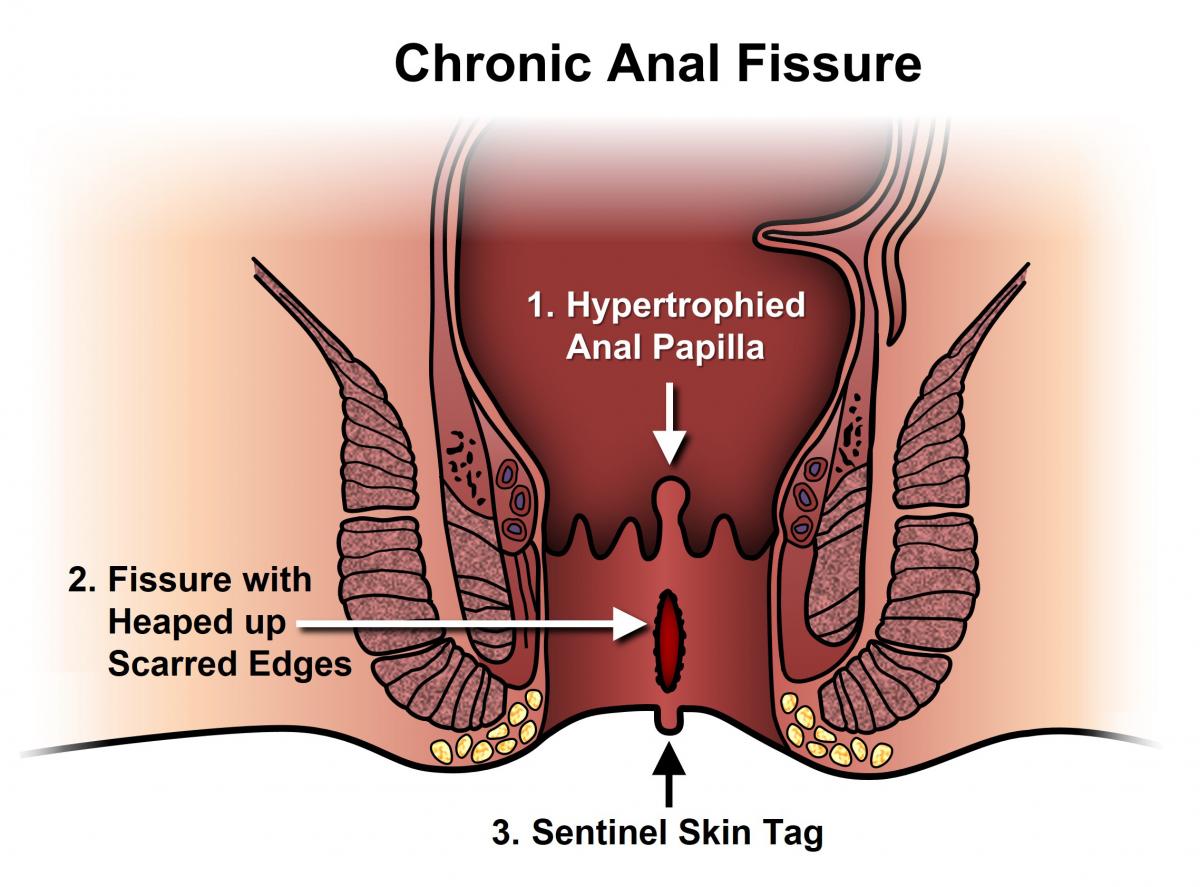The anal canal is a short tube surrounded by muscle at the end of your rectum. The rectum is the bottom section of your colon (large intestine). An anal fissure is a small rip or tear in the lining of the anal canal. Fissures are common, but are often confused with other anal conditions, such as hemorrhoids.

CAUSES OF ANAL FISSURE
Fissures are usually caused by trauma to the inner lining of the anus from a bowel movement or other stretching of the anal canal. This can be due to a hard, dry bowel movement or loose, frequent bowel movements. Patients with a tight anal sphincter muscle are more likely to develop anal fissures. Less common causes of fissures include inflammatory bowel disease, anal infections, trauma or tumors.
SYMPTOMS
Anal fissures typically cause a sharp pain that starts with the passage of stool. This pain may last several minutes to a few hours. As a result, many patients may try not to have bowel movements to prevent the pain.
Other symptoms include:
- Bright red blood on the stool or toilet paper after a bowel movement
- A small lump or skin tag on the skin near the anal fissure (more common when chronic or having been present for greater than 6 weeks)
NONSURGICAL TREATMENT
Your physician will discuss the benefits and side effects of treatments.
Treatment includes:
- A high-fiber diet and over-the-counter fiber supplements (25-35 grams of fiber/day) to make stools soft, formed, and bulky.
- Over-the-counter stool softeners to make stools easier to pass.
- Drinking more water to help prevent hard stools and aid in healing.
- Warm tub baths (sitz baths) for 10 to 20 minutes, a few times per day (especially after bowel movements to soothe the area and help relax anal sphincter muscles). This is thought to help the healing process.
- Medications, such as lidocaine, that can be applied to the skin around the anus for pain relief.
- Medications such as diltiazam, nifedipine, or nitroglycerin ointment to relax the anal sphincter muscles which helps the healing process.
Narcotic pain medications are avoided because they can cause constipation which could make the situation worse.
